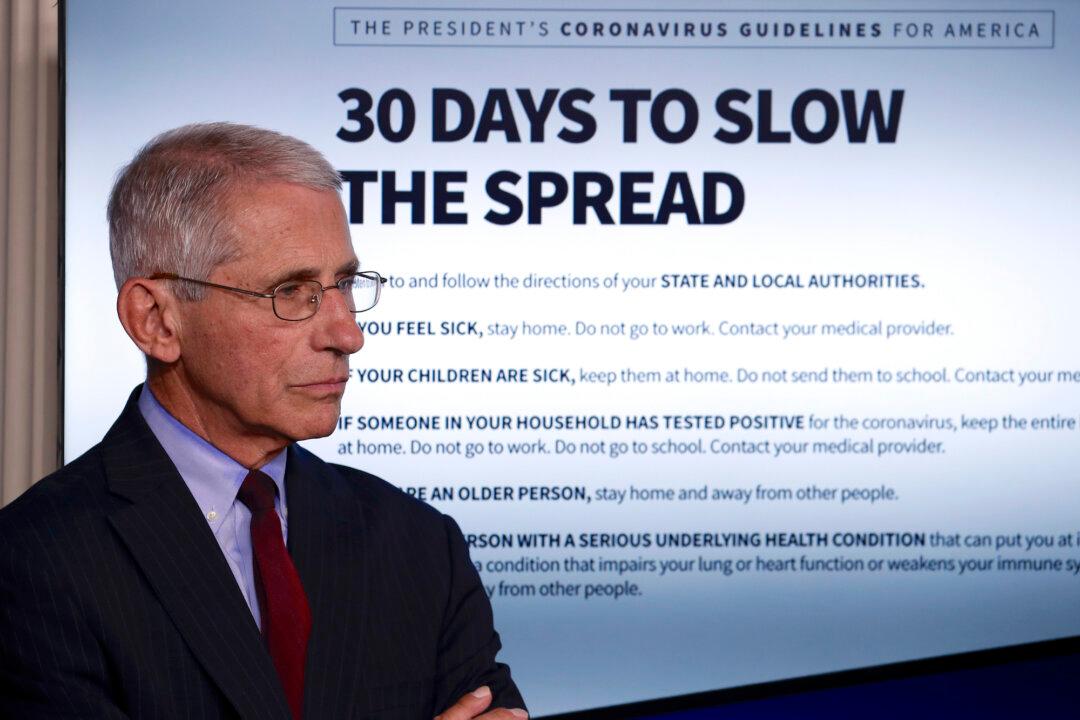One of America’s top health officials endorsed the idea of a national stay at home order amid the COVID-19 pandemic, wondering why it hasn’t been implemented yet.
Dozens of states have ordered residents to stay at home unless they’re taking essential trips, including for groceries, medicine, or healthcare. Alabama, Arkansas, Iowa, Nebraska, and South Dakota are among those without a stay at home order.





